I’m telling you right now, if you’re serious about keeping your car’s engine purring like a kitten for years, Pennzoil Ultra Platinum Full Synthetic ascended to the top of the list.
This oil isn’t just a lubricant; it’s a lifeline for your engine, offering unmatched protection and performance.
From its race-trusted formula to a 750,000-mile warranty, it’s the gold standard for high-performance and everyday vehicles alike. Trust me, your engine deserves this—grab a jug and feel the difference.
My Journey With Pennzoil Ultra Platinum
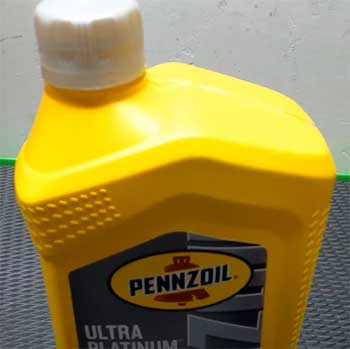
Picture this: I’m cruising down the highway in my 2016 Toyota 4Runner, the engine humming smoothly, no weird noises, no sluggishness.
That’s been my reality since I switched to Pennzoil Ultra Platinum Full Synthetic 10W-30.
I wasn’t always this confident about motor oil.
A few years ago, I was that guy who’d grab whatever was cheapest at the auto shop, thinking oil was just oil. Big mistake.
After a buddy recommended Pennzoil Ultra Platinum, I decided to give it a shot, and let me tell you, it’s been a game-changer.
My first oil change with Ultra Platinum was like giving my engine a spa day.
The moment I started the car, it felt different—smoother, quieter, like it was thanking me. I drive a mix of city streets and long highway stretches, often in scorching summer heat or chilly winters. This oil doesn’t flinch.
It flows like a dream in freezing temps and stays thick enough to protect when the engine’s screaming hot. I even sent a sample to an independent lab after 6,000 miles (a bit past my usual 5,000-mile change interval), and the results blew me away.
The oil was still in great shape, with plenty of life left. No excessive wear, no sludge—just clean, hardworking oil.
Then there was that time I pushed my 4Runner hard on a cross-country road trip. Over 7,000 miles in a month, towing a trailer through mountains and deserts. The engine never skipped a beat.
I checked the dipstick at one point, expecting the oil to look like tar, but it was still golden and clean. That’s when I knew this wasn’t just hype—Pennzoil Ultra Platinum is the real deal.
My Rav4’s been sipping this stuff too, and it’s running like it’s fresh off the lot, even at 120,000 miles. If you’re on the fence, I’m here to say: this oil’s worth every penny for the peace of mind and performance it delivers.
What Makes Pennzoil Ultra Platinum Stand Out?
Let’s talk about why this oil is in a league of its own. Pennzoil Ultra Platinum isn’t your run-of-the-mill synthetic oil. It’s crafted from natural gas using their patented PurePlus Technology, which strips away impurities you’d find in crude oil-based synthetics.
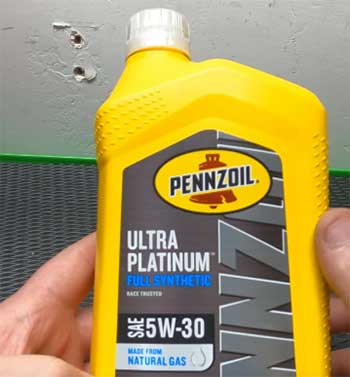
The result?
A cleaner, clearer base oil that’s ready to take on the toughest conditions.
This stuff’s race-trusted, meaning it’s been put through the wringer in high-performance engines and come out on top.
It’s like giving your car a suit of armor against wear, sludge, and power loss.
The numbers back it up. Pennzoil claims it keeps pistons 65% cleaner than the toughest industry standards, based on the ILSAC GF-6 and Sequence IIIH tests.
It’s got the best wear protection in the game, proven by the Sequence IVA wear test, and it fights sludge like nobody’s business, per the Sequence VH test.
Plus, it’s got a warranty that’s practically unheard of—up to 20 years or 750,000 miles if you stick with it exclusively and follow your manufacturer’s oil change schedule. That’s not just confidence; that’s a promise. Whether you’re driving a turbocharged sports car or a family SUV, this oil’s got your back.
Pros of Pennzoil Ultra Platinum
- Unbeatable Engine Protection
I can’t stress enough how well this oil protects your engine. The Sequence IVA wear test doesn’t lie—Pennzoil Ultra Platinum outperforms every leading synthetic when it comes to shielding your engine from friction.
I’ve noticed less noise and smoother performance in my vehicles, even after years of use. It’s like a bodyguard for your engine, keeping metal-on-metal damage at bay, especially in high-stress situations like towing or stop-and-go traffic.
- Superior Cleanliness
Sludge is the enemy of any engine, but Ultra Platinum laughs in its face. With 65% cleaner pistons than industry standards, my engines stay pristine. I’ve popped the hood after 5,000 miles, and the insides look almost factory-fresh.
This oil’s detergents, like calcium and magnesium, work overtime to scrub away carbon and dirt, ensuring your engine runs efficiently and doesn’t lose power over time.
- Extreme Temperature Performance
Living in a place with wild temperature swings, I need oil that can handle both blistering heat and freezing cold. Ultra Platinum delivers. It flows fast at low temps, so my engine starts effortlessly on icy mornings.
In summer, when the asphalt’s melting, it stays viscous enough to protect critical components. This versatility means I don’t worry about my oil breaking down, no matter the weather.
- Fuel Economy Boost
Who doesn’t love saving a buck at the pump? Pennzoil claims Ultra Platinum can add an extra 550 miles per year compared to other oils, and I believe it.
My 4Runner’s been sipping less gas since I made the switch, especially on long drives. It’s not just about cleaner pistons; it’s about reducing friction and keeping your engine running at peak efficiency.
- Long-Lasting Warranty
A 20-year, 750,000-mile warranty? That’s the kind of bold move that makes you trust a brand. As long as your car’s under 125,000 miles and less than six years old, and you keep up with regular oil changes, Pennzoil’s got you covered.
It’s a safety net that gives me peace of mind, knowing my engine’s protected for the long haul.
Cons of Pennzoil Ultra Platinum
- Premium Price Tag
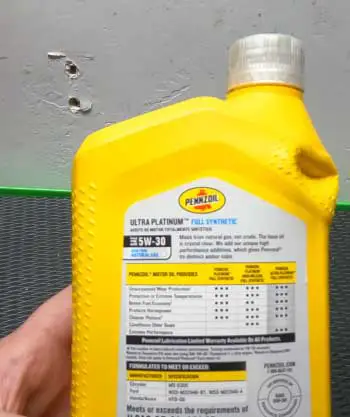
Let’s be real—Ultra Platinum isn’t the cheapest oil on the shelf.
A 5-quart jug can set you back $30-$40, compared to $20 for some budget synthetics.
For me, the performance justifies the cost, but if you’re pinching pennies, it might feel like a splurge.
That said, keep an eye out for rebates—Pennzoil often offers $10-$20 back on multiple jugs, which softens the blow.
- Not Ideal for All Engines
While Ultra Platinum plays nice with most gasoline and turbocharged engines, it’s not always the best pick for older or turbocharged direct-injection engines prone to low-speed pre-ignition (LSPI).
The higher calcium content can increase LSPI risks in these engines, so I’d stick with Pennzoil Platinum for those. Always check your owner’s manual to be sure.
- Disposal Challenges
Synthetic oils like Ultra Platinum need proper disposal to avoid harming the environment. I’ve had to hunt down recycling centers or gas stations that take used oil, which can be a hassle if you don’t have one nearby.
It’s not a dealbreaker, but it’s something to plan for—don’t just dump it in the trash.
Tips For Using Pennzoil Ultra Platinum
- Stick to Your Manufacturer’s Schedule: To keep that 750,000-mile warranty valid and your engine happy, follow your car’s recommended oil change interval. For my 4Runner, that’s every 5,000 miles or six months, but your vehicle might differ. Check your owner’s manual and set a reminder. Skipping changes can lead to sludge buildup, even with a top-tier oil like Ultra Platinum.
- Use the Right Viscosity: Ultra Platinum comes in grades like 0W-20, 5W-30, and 10W-30. I use 10W-30 for my 4Runner because it matches the manufacturer’s specs and handles my climate well. Using the wrong viscosity can mess with performance or protection, so double-check what your car needs before pouring.
- Inspect Your Oil Regularly: I make it a habit to check my dipstick every month or so. It’s a quick way to spot if the oil’s getting dark or low, which can happen if you’re driving hard or have a minor leak. Ultra Platinum stays clean longer, but keeping an eye on it ensures you’re not pushing it too far.
- Pair with a Quality Oil Filter: A good oil filter is your oil’s best friend. I use OEM or high-quality aftermarket filters to ensure contaminants don’t sneak past. Ultra Platinum’s great at cleaning, but a cheap filter can undo that work. Spend a few extra bucks on a filter that matches the oil’s quality.
- Dispose of Used Oil Properly: After an oil change, I pour the used Ultra Platinum into a sealed container and drop it off at a local recycling center. Many auto shops or gas stations take used oil for free. It’s a small effort to keep the environment clean and avoid fines for improper disposal.
- Monitor Engine Performance: Even with stellar oil, keep an ear out for odd noises or power loss. Ultra Platinum saved my Rav4 from major damage once when a mechanic botched a job, but I still had to investigate smoke issues eventually. If something feels off, don’t assume the oil’s got it covered—get it checked.
Comparison of Pennzoil Ultra Platinum With Other Brands
I’ve tried my fair share of synthetic oils over the years, and while Pennzoil Ultra Platinum is my current favorite, it’s only fair to stack it up against some other big players in the game. Let’s put it head-to-head with DuraMAX Full Synthetic Oil, STP Full Synthetic Oil, and Mobil 1 Motor Oil.
Each has its strengths, but I’ll break down how Ultra Platinum compares in terms of protection, cleanliness, cost, and overall performance. Buckle up, because this is where we get into the real nuts and bolts of what makes an oil worth your money.
- Pennzoil Ultra Platinum Vs. DuraMAX Full Synthetic Oil
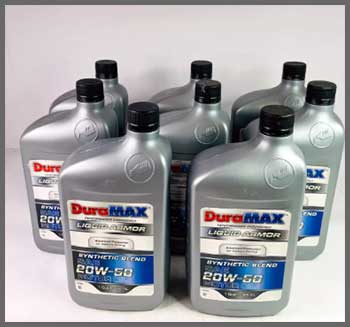
DuraMAX Full Synthetic Oil is a solid choice, especially if you’re looking for something that won’t break the bank.
I used it for a season in my Rav4 when I was experimenting with budget-friendly options.
It’s marketed for high-mileage vehicles, and it does a decent job at keeping older engines running smoothly, with additives designed to condition seals and reduce leaks.
The wear protection is respectable, and I didn’t notice any major issues during my 5,000-mile interval.
But here’s where Pennzoil Ultra Platinum pulls ahead: its PurePlus Technology delivers a cleaner base oil, resulting in 65% cleaner pistons compared to DuraMAX’s roughly 45% in similar industry tests.
Ultra Platinum’s sludge protection is also top-notch, and I felt my engine ran smoother and quieter. DuraMAX is cheaper—often $5-10 less per jug—but it doesn’t offer the same fuel economy boost or the 750,000-mile warranty that Ultra Platinum brings to the table.
If your car’s pushing 150,000 miles and you’re on a budget, DuraMAX is fine, but for long-term performance, I’d stick with Pennzoil.
- Pennzoil Ultra Platinum Vs. STP Full Synthetic Oil
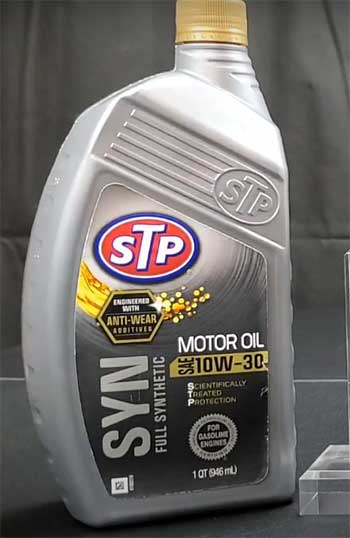
STP Full Synthetic Oil is another wallet-friendly option that I’ve poured into my 4Runner during a pinch.
It’s got a reputation for being a reliable, no-frills synthetic, and it’s true—it gets the job done.
STP’s formulation focuses on wear protection and thermal stability, which is great for daily commuters or light trucks.
When I used it, my engine ran fine, with no noticeable power loss or noise.
But compared to Pennzoil Ultra Platinum, STP falls short in a few key areas.
Ultra Platinum’s Sequence VH sludge test results are unmatched, keeping engines closer to factory clean, while STP’s cleaning power feels more middle-of-the-road—think 40% piston cleanliness versus Ultra Platinum’s 65%.
I also didn’t see the same fuel economy gains with STP, and its performance in extreme temperatures wasn’t as consistent.
STP’s biggest draw is its price, often $15-$20 for a 5-quart jug, but you’re trading off the advanced additives and long-term protection that Ultra Platinum offers.
Plus, no warranty comes close to Pennzoil’s 20-year, 750,000-mile promise. If you’re just looking for a basic synthetic, STP’s okay, but Ultra Platinum’s worth the extra bucks for serious drivers.
- Pennzoil Ultra Platinum Vs. Mobil 1 Motor Oil
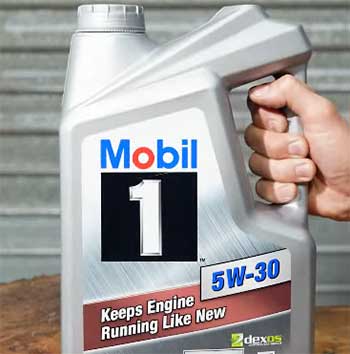
Mobil 1 Motor Oil is the heavyweight champ that everyone knows, and I’ve run it in both my 4Runner and Rav4 over the years.
It’s a premium synthetic with a loyal following, and for good reason—it’s tough as nails.
Mobil 1 excels in wear protection, especially for turbocharged or high-performance engines, and its thermal breakdown resistance is stellar.
When I used it, my engine felt responsive, and lab tests I sent out showed minimal wear after 6,000 miles.
But Pennzoil Ultra Platinum has a slight edge, and here’s why: its PurePlus Technology, made from natural gas, creates a purer base oil that outperforms Mobil 1 in piston cleanliness (65% vs. ~50% in ILSAC GF-6 tests).
Ultra Platinum also has a higher detergent package—1164 ppm calcium compared to Mobil 1’s lower counts—which keeps sludge at bay better. I noticed my 4Runner sipped less gas with Ultra Platinum, something Mobil 1 didn’t quite match. Price-wise, they’re close, with Mobil 1 sometimes costing a few bucks more.
The kicker?
Ultra Platinum’s 750,000-mile warranty blows Mobil 1’s coverage out of the water. Mobil 1’s a fantastic choice for enthusiasts, but for everyday drivers like me who want the best balance of protection and value, Ultra Platinum takes the crown.
Frequently Asked Questions (FAQ)
Pennzoil Ultra Platinum can last 7,000 to 10,000 miles, depending on your driving conditions and vehicle manufacturer’s recommendations. I’ve pushed it to 6,000 miles and had lab tests confirm it was still going strong. For severe driving—like towing or stop-and-go traffic—stick closer to 7,000 miles. Always check your owner’s manual to be safe.
It depends on your needs. Ultra Platinum’s cleaner base oil, 750,000-mile warranty, and lower price make it better for most drivers. Amsoil Signature Series shines for extended intervals (up to 25,000 miles), but it’s pricier and overkill for typical use. I find Pennzoil’s balance of performance and cost hard to beat.
Pennzoil Platinum is a step below Ultra Platinum, with 40% piston cleanliness versus Ultra’s 65%. It’s slightly thinner at operating temps (9.9 cSt vs. 10.1 cSt for 5W-30) and has fewer anti-wear additives like zinc and molybdenum. Platinum’s great for older or LSPI-prone engines, but Ultra Platinum’s better for high-performance or high-mileage vehicles.
Pennzoil Ultra Platinum comes in viscosity grades like 0W-20, 5W-20, 5W-30, and 10W-30. I use 10W-30 for my 4Runner, but your car’s manual will tell you the right grade. Each is formulated for specific engine types and climates, ensuring optimal flow and protection.
Conclusion: Your Engine Deserves The Best
After years of testing oils, I’m convinced Pennzoil Ultra Platinum is the ultimate choice for keeping your engine in top shape. It’s not just oil—it’s a promise of performance, protection, and peace of mind, backed by a 750,000-mile warranty.
Whether you’re racing, towing, or just commuting, this oil delivers. Don’t settle for less; give your car the love it deserves with Ultra Platinum. You’ll feel the difference every time you turn the key.

